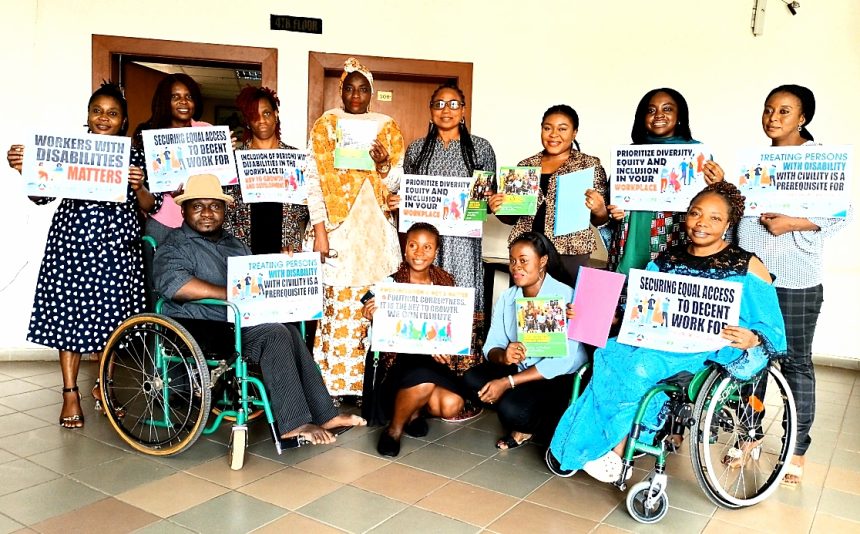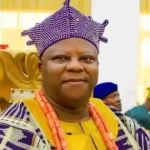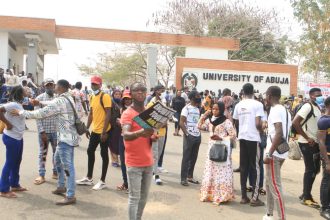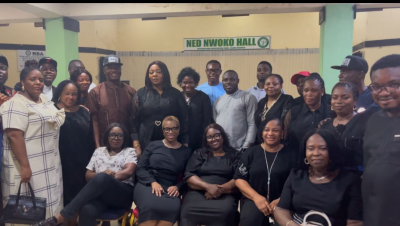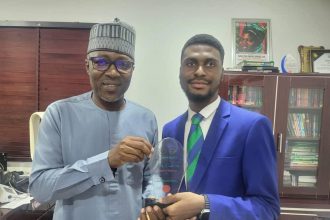The National Human Rights Commission (NHRC) has inaugurated a Disability Inclusion Technical Working Group to strengthen the implementation of the Discrimination Against Persons with Disabilities (Prohibition) Act, 2018, and advance Nigeria’s commitment to the African Disability Protocol (ADP).
The inauguration, held during a consultative meeting in Abuja, was convened by the NHRC with the support of Sightsavers International.
Speaking at the event, the Executive Secretary of the NHRC, Dr. Tony Ojukwu (SAN), represented by the Head of the Economic and Socio-Cultural Rights Department, Mr. Harry Obe, stressed that the initiative was a collective effort aimed at embedding disability inclusion across organisations, policies, and governance structures.
He recalled that the decision to establish the Technical Working Group was one of the resolutions reached at a workshop jointly organised by NHRC and Sightsavers in October 2024. According to him, the group’s mandate aligns with Articles 33 and 34 of the African Disability Protocol, which require member states to designate mechanisms for monitoring implementation, building capacity, and ensuring full participation of persons with disabilities in decision-making.

“The Disability Inclusion Technical Working Group is a multi-stakeholder platform, with members drawn from government institutions, civil society organisations, and advocacy groups. It will play a central role in coordinating, mainstreaming, and providing technical support for inclusive policies, programmes, and practices,” Ojukwu said.
He further emphasised that the initiative was “a crucial step toward creating inclusive environments where persons with disabilities can realise their potential,” in line with the NHRC’s statutory mandate of promoting, protecting, and enforcing the rights of all Nigerians.
In her remarks, Joy Tarbo, Communication Officer of Sightsavers, representing the Country Director, Prof. Joy Shuaibu, described the inauguration as a step forward in ensuring that laws and policies translate into lived realities for persons with disabilities.
“Behind every law and every policy are people — men, women, boys and girls — with dreams, hopes, and the right to live with dignity and equality. Together, we can make sure that these commitments are not just on paper but impact the everyday lives of people with disabilities across Nigeria and beyond,” she said.
The Executive Secretary of the National Commission for Persons with Disabilities (NCPWD), Ayuba Gutwan, highlighted key areas requiring urgent attention, including access to work, compliance with accessibility standards, sustained advocacy, and collaborative partnerships with Ministries, Departments, and Agencies (MDAs).

“A multi-pronged strategy towards inclusion will help deliver overdue impact in the enforcement of disability rights. Stakeholders must decide whether the African Disability Protocol should be domesticated separately or integrated within our domestic legislation to avoid duplicity,” Gutwan added.
Also speaking, Ms. Winifred Achu, representing the European Union, raised concerns over persistent barriers faced by persons with disabilities in accessing financial services. She noted that while Nigeria has relevant laws in place, awareness and enforcement remain inadequate.
“The EU stands ready to support Nigeria in implementing the Disabilities Act and the Protocol, but awareness and sensitisation must be intensified at all levels,” Achu said.
The consultative forum brought together representatives from government ministries, agencies, international development partners, and civil society organisations, marking a major step in consolidating Nigeria’s commitment to disability inclusion.
The inauguration of the Technical Working Group is expected to accelerate coordinated action, ensure compliance with international and domestic disability rights instruments, and promote meaningful participation of persons with disabilities in shaping policies that affect their lives.
Read More:



